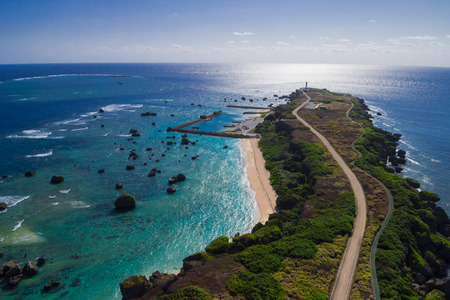The world contains many places whose inhabitants live an exceptionally long time. These are known as “blue zones” and have been extensively studied by gerontologists. The residents of such communities age at a slower rate and have far shorter periods of illness and dependence in the run up to their death. When death does finally come, it also tends to be quicker and less painful than it is for those outside the zone.
 Among the numerous blue zones, perhaps the most famous is the Japanese island of Okinawa. The inhabitants of certain parts of Sardinia, Ikaria, and the Nicoya peninsula also live an exceptionally long time. Here are some of the reasons these people tend to live long, healthy lives:
Among the numerous blue zones, perhaps the most famous is the Japanese island of Okinawa. The inhabitants of certain parts of Sardinia, Ikaria, and the Nicoya peninsula also live an exceptionally long time. Here are some of the reasons these people tend to live long, healthy lives:
1) Their rich, fulfilling social lives. According to the Robert Wood Johnson Foundation, the United States’ largest philanthropy, loneliness can be as bad for you as smoking. In Okinawa, for example, people maintain what is known as a moai, or tight circle of friends, throughout their lives. The members are expected to support one another during major life events, such as pregnancy or the loss of parents. The Mediterranean blue zones have retained a traditional outdoor culture, joining together in the evenings to eat, sing songs, play with children, and tell stories. Blue zone residents were also found to enjoy a strong sense of belonging, often joining religious groups and involving themselves in the ebb and flow of community life.
2) The way they eat. Much has been made of the blue zone diets, which suggest that how people eat may be just as important as what they eat. The average resident of a city like New York or London seems to regard food almost as an inconvenience, as though it’s something to be crammed in while rushing to catch a train or pick up the kids. They also tend to eat their big meal after work, often late at night. In the blue zones, by contrast, the majority of their daily calories are consumed before lunchtime. Furthermore, meals are still regarded as almost sacred. Most eat with others, beginning their meal with some kind of prayer or blessing and then taking their time to chew slowly and thoroughly.
3) Their periodic fasting. Fasting, either for religious or health reasons, was found again and again in the blue zones. The Sardinians, for example, are more likely to observe Lent than less-religious communities. For others, fasting was associated with purification. Whatever the motive, fasting puts the body into “survival mode.” In this state, cells produce fewer dangerous free radicals. Fasting is also believed to lower the amount of IGF-1 in the body, a hormone that can trigger cancer.
4) The better quality of their meat. To their surprise, researchers found that the longest-living residents were not vegetarians. Meat is regularly consumed in the blue zones, but it is of much better quality than that found in your local supermarket. The people of the blue zones do not grow up eating imported meat. Instead, they eat free-roaming local animals that have not been penned and contaminated by pesticides, antibiotics, or growth hormones.
5) Their lower sugar consumption. Laura Deming, a leading researcher into ageing, has stated that anyone who wishes to slow the ageing process should begin by cutting down on sugar. As well as speeding up the rate at which people age, sugar suppresses the immune system. Sugar is eaten in the blue zones, but not nearly as much. No 90-year-old Okinawan or Ikarian grew up guzzling soda drinks and eating candy. Instead, their sugar cravings were satisfied by things like fresh honey. Also, they do not add so much sugar to their food.
6) Their preference for whole foods. Blue zoners eat most of their food in its natural, whole state. They also tend to eat food grown within a 10-mile radius of their home. Fruits and vegetables are rarely pulped, frozen, juiced, or peeled. Instead, they are eaten as a single ingredient, often raw or fermented. Few blue-zone centenarians had ever heard of a juicer!
7) Their high consumption of superfoods. Researchers paid particular attention to so-called “superfoods.” In Ikaria, for example, they noted the widespread consumption of a locally produced, thick, rich honey, which the residents ate by the spoonful, often as a medicine. They also noted the love for a probiotic feta cheese, black-eyed peas, and extra virgin olive oil. In Okinawa, turmeric, sweet potatoes, shiitake mushrooms, and wakame seaweed were all eaten in large quantities.
Of course, nothing guarantees a longer life. You could try all of the above and still not make it past 60. And everyone has known those infuriating individuals who smoke, drink, and eat whatever they like, and then live to 95. What you can do, however, is stack the odds in your favor. Following the advice listed here would not be a bad start.
